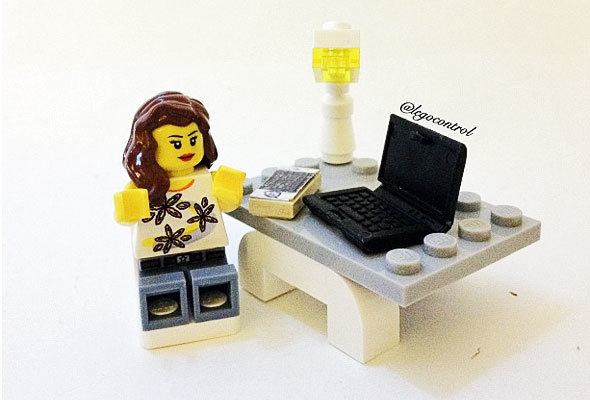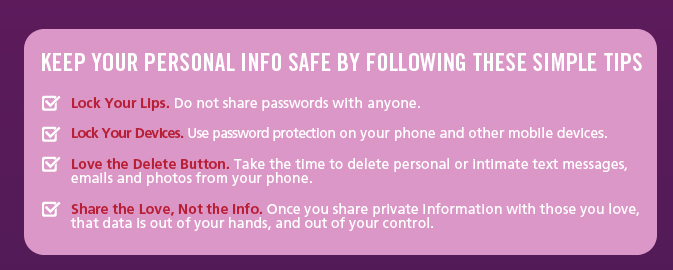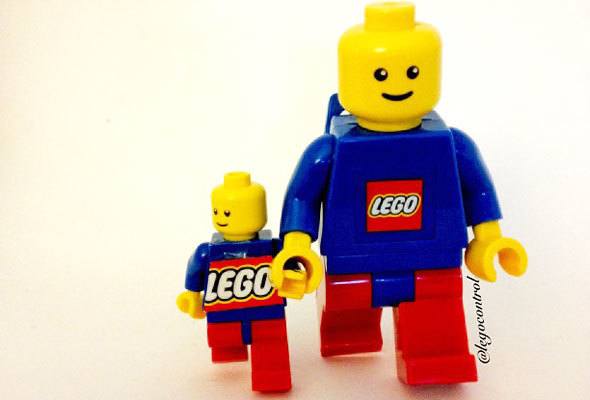 Photo by Legocontrol
Photo by Legocontrol.
Repeat after me: there is no privacy online
I received an email from my daughter’s teacher urging us parents to take more notice what some of the children in my daughter’s class are posting on Instagram.
Last week a friend of mine was tagged in a very unflattering and inappropriate photo on Facebook and everyone was able to see it in her profile.
A few weeks ago I was chatting with my friend on Facebook in a language her husband doesn’t speak, yet he tried translating it with Google translate and greatly misunderstood our conversation and it resulted in family drama. The marriage drama had no cases for real drama expect the fact my friend didn’t have privacy to send private messages on Facebook.
A PR person from a respected company was featured in a major business website last week and a photo from his private Facebook page was featured and questioned for, and this may cause this person his job.
Rumors, published private information, poor judgement and bad behavior on social media result in lost jobs and ruined relationships and it has become part of our lives. A few years ago it was still front page news when people lost their jobs due tweets, Facebook photos or written blog posts, now it sadly has become part of today’s society.
Social media, internet and the way we are able to connect with people around the world has changed my life the past ten years, and I do publish personal stories, personal photos and information online, however, with a very strong filter to protect myself and my family. It might be easy to be mistaken that if you don’t have as many social media “followers” as I do that the filter isn’t as important.
The filter is important for everyone.
Rules of engagement
My rule of thumb is that never publish anything that you don’t want your spouse (or future spouse) or your mother, your mother-in-law (or future mother-in-law) or your children (or future children) or your boss (or future boss) see.
Today’s Grandmothers are on Facebook, your children’s teachers are on Pinterest, your boss is on Twitter, and your children’s friends on Instagram, and every time you hit publish on any of these sites, think how these people will see you in all of these platforms.
Many argue for private profiles, private messages, and privacy settings and say that only a handful of friends are seeing what you are posting.
Dear friends, there is no privacy online.
Sadly there is even no privacy when it comes to your emails nor text messages, or just read Damn You Autocorrect or other blogs where they publish screenshots of text messages, or embarrassing Facebook messages. There is always someone, or someone’s sister, friend or spouse with an access to your or your friend’s account, or Facebook has yet another privacy update removing all of our privacy all together.
Always use caution when it comes to social media.
When it comes to my friend’s marriage drama and her husband’s misunderstanding, it would be easy to say that it was all of his fault for spying on her, and any marriage should base on trust. I agree on every marriage being based on trust. However, we all have to learn that there is no privacy online, however much we would like there to be. Even as close to home as in my own marriage, sure, I have seen my husband publishing things online that have made me angry and sad. And I am positive my husband has seen me to do the same regardless how much I try to be respectful in what I am posting.
Keep private things.. private and offline
It is a good reminder for all us to keep our private things private and keep them offline. What is put online has a funny way of always coming out, sometimes even weeks, months or years after the fact.

McAfee released findings from the company’s
2013 Love, Relationships, and Technology survey which examines the pitfalls of sharing personal data in relationships and discloses how breakups can lead to privacy leaks online. The study highlights the need for consumers to take steps to protect themselves from cyber-stalking and exposure of private information.
Nearly two-thirds of smartphone owners have personal and intimate information on their mobile devices, such as bank account information, passwords, credit card numbers and revealing photos, yet only 40% have password protection on their devices. This leaves a gap in personal data protection, which results in exposure.
We’re all aware of the cases involving celebrities, but you don’t have to be a celebrity to have your personal information exposed
said Michelle Dennedy, an online security expert for McAfee.

What about our kids?
What’s the most important thing about this is educating our children correctly about social media and being great examples. Online bullying didn’t exist when we went to school, and many parents might not have first hand experience or even know online bullying exists. We might also think that what we do online doesn’t concern our children, and your “online world” is separate from the “in real life parenting world.” You couldn’t be more wrong. Even if your child doesn’t have access to internet today, she/he will in the future and your online footprint can be found by your offspring (and for you younger single people – your online footprint can also be found by your prospective future spouse!).
As a parent you have responsibility not just learn about social media etiquette and best practices for yourself, but also so you can both educate and monitor what your child is doing online. If you are a parent and want to learn more, you might want to check out my friend Amy Lupold Bair’s new book
Raising Digital Families For Dummies
, out today.
I personally encourage my children for social networking and learning from day one how to do it correctly – before they are too old to make any big mistakes they might regret later in their lives. Our family’s favorite network is Instagram – and my son’s pictures are featured in the post.
 Photo by Legocontrol.
Photo by Legocontrol.
 McAfee released findings from the company’s 2013 Love, Relationships, and Technology survey which examines the pitfalls of sharing personal data in relationships and discloses how breakups can lead to privacy leaks online. The study highlights the need for consumers to take steps to protect themselves from cyber-stalking and exposure of private information.
Nearly two-thirds of smartphone owners have personal and intimate information on their mobile devices, such as bank account information, passwords, credit card numbers and revealing photos, yet only 40% have password protection on their devices. This leaves a gap in personal data protection, which results in exposure.
McAfee released findings from the company’s 2013 Love, Relationships, and Technology survey which examines the pitfalls of sharing personal data in relationships and discloses how breakups can lead to privacy leaks online. The study highlights the need for consumers to take steps to protect themselves from cyber-stalking and exposure of private information.
Nearly two-thirds of smartphone owners have personal and intimate information on their mobile devices, such as bank account information, passwords, credit card numbers and revealing photos, yet only 40% have password protection on their devices. This leaves a gap in personal data protection, which results in exposure.

